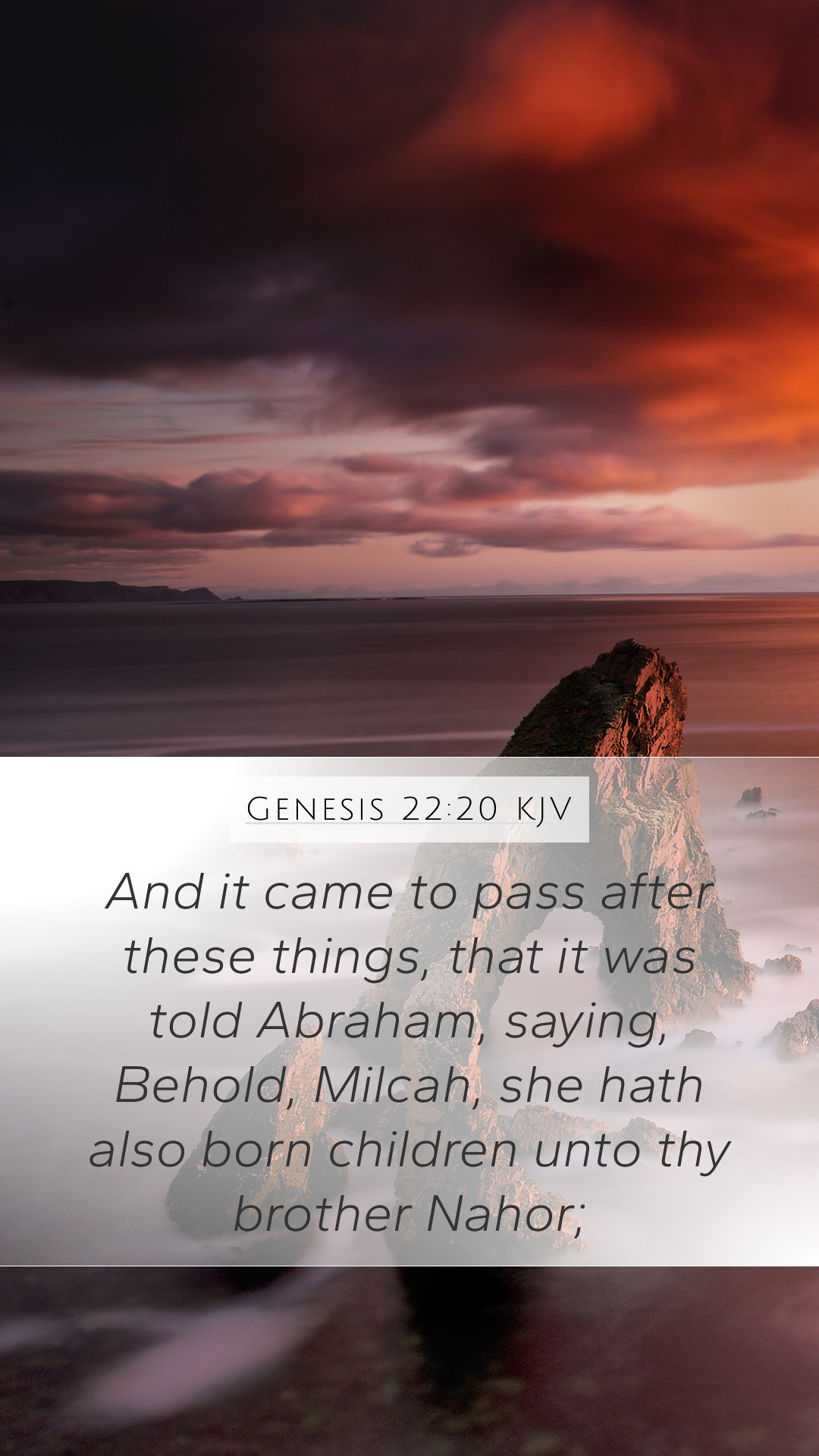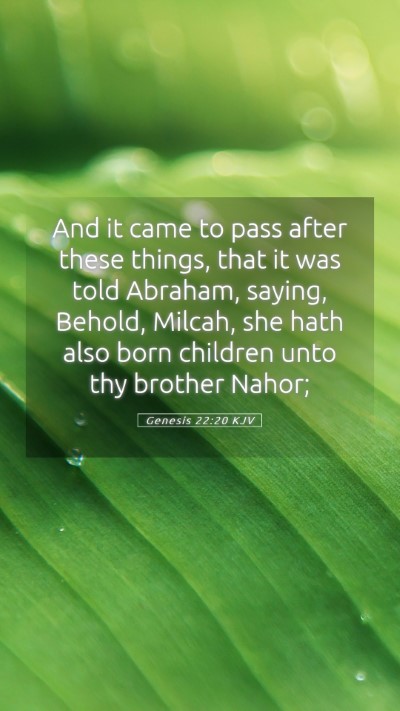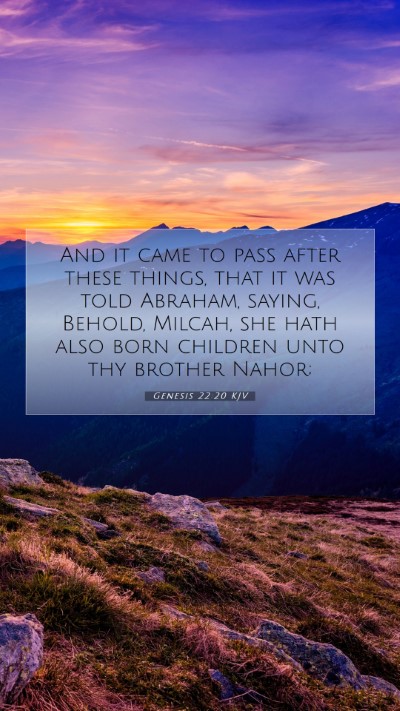Genesis 22:20 states: "And it came to pass after these things, that it was told Abraham, saying, Behold, Milcah, she hath also borne children unto thy brother Nahor;"
Bible Verse Meanings and Interpretations
Genesis 22:20 serves as a pivotal verse in the narrative of Abraham's life, pointing to the familial ties and the ongoing story of God's covenant with His people. According to Matthew Henry, this verse signifies a transition in Abraham's life. While it follows the momentous act of Abraham's near-sacrifice of Isaac, Henry notes that it emphasizes God's ongoing covenant with Abraham through his extended family. Here, we see a reminder of God's faithfulness beyond just Isaac, revealing that God's plans encompass a larger family lineage.
Albert Barnes provides additional insight into this verse. He highlights the mention of Milcah and Nahor as a reflection of the blessings that continue to flow from Abraham's lineage. The births of children within the family serve to contrast the testing of Abraham with his unwavering faith, emphasizing the importance of family in God's divine plan. Barnes suggests that the continuation of Abraham's family, despite the trials faced, reinforces the idea of God keeping His promises throughout generations.
Adam Clarke also contributes significantly to the understanding of this verse. He delves into the historical and contextual aspects of the relationships mentioned. Clarke points out that this information serves more than mere familial recount; it indicates God's provision and His sovereignty in allowing blessings to flow from Abraham's brother. This development, in light of Abraham's covenant, showcases God's plan includes more than individual narratives but a collective purpose aligned with divine strategy.
Understanding Scripture: Key Themes and Messages
- God's Faithfulness: This verse highlights God's unyielding faithfulness to His covenants, extending beyond the immediate family and into the broader lineage.
- Importance of Family: The mention of Milcah and Nahor underscores the significance of family ties in the biblical narrative, illustrating that God's plan weaves through personal relationships.
- Divine Provision: The births of Nahor's children reflect God's provision and blessings, reminding us that His promises are fulfilled in many ways.
In-Depth Bible Verse Analysis
In analyzing Genesis 22:20, we see that it is crafted as a narrative link that transitions readers from the climax of Abraham's faith into the continuation of his family line. Understanding the context is critical. After the dramatic episode where Abraham's faith was tested through the near sacrifice of Isaac, this verse reminds us of the life and legacy being built around him. The importance of the announcement of Milcah's children marks a significant shift, as it denotes that God's promises are being fulfilled not just through Isaac but through multiple generations that include multiple families.
Application of Bible Verses to Daily Life
The implications of Genesis 22:20 for daily life are profound. It teaches us about:
- The Legacy We Leave: As Abraham's legacy continues through his family, we too must consider the legacy we create through our relationships and faith.
- Trusting God's Plan: Abraham’s journey illustrates the importance of trust in God's plans, even when they are not immediately clear to us.
- Family as a Sacred Trust: Just as families in the Bible carry divine significance, our families today also play a crucial role in God's plan.
Cross References to Consider
- Genesis 12:1-3 - God's initial covenant with Abraham.
- Genesis 17:19 - God's promise concerning Isaac.
- Genesis 24:15 - The lineage and choices of the family of Abraham.
Conclusion
Genesis 22:20 provides rich insights into biblical themes, emphasizing God's unwavering faithfulness, the importance of family, and the unfolding of His divine plan through generations. Through interpretations offered by public domain commentaries, we gain a comprehensive understanding that deepens our engagement with scripture. This verse not only expands our knowledge of Abraham's legacy but also challenges us to reflect on the legacies we build in our lives today.


